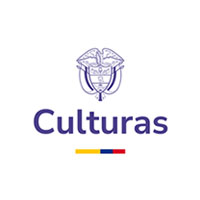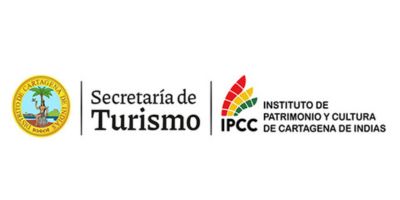Colombia Digital 2021
Thank you for joining Hay Festival Digital Colombia 2021. The festival has finished, with more than a million viewers who joined us and enjoyed the events. You can see all the events on the Hay Player, our online archive containing the audio and video of the events from all the Hay Festivals.
View the Hay Festival Comunitario programme: the section for children and young adults.
View the Talento Editorial programme, our selection of events about the publishing industry.
Event HFC1
Workshop for teachers with Elisa Guerra
Reading to understand: Reimagining the teaching of reading
Institución Educativa Politécnico del Pozón
Read moreAccording to UNESCO and the World Bank, one out of every two children in the world cannot understand what they read. Although there are many factors that contribute to this global learning crisis, we need to ask ourselves about how and when we have taught our children to learn. At this lecture for teachers with Elisa Guerra, we explore a practical proposal for the teaching of reading, as well as strategies to increase reading comprehension at any age.

Event HFC0
Workshop for community reporters with Catalina Gómez Ángel
Institución Educativa Politécnico del Pozón
Read more
Event HFC2
Musical presentation with children from the Corporación Ruleli, followed by La Pambelé
Hay Festival Comunitario inaugural event: Ritmos de Libertad
Institución Educativa Politécnico del Pozón
Read moreThe inclusive theatre company Ritmos de Libertad, run by the social and cultural organisation Ruleli, based in the Olaya neighbourhood, opens the 2026 Hay Festival Comunitario with a show that includes dance, music and theatre, and which involves children, teenagers, young adults and disabled people, celebrating the group’s diversity. Inspired by Caribbean musical rhythms, they emphasise their African heritage through some vibrant routines. This special opening event will also feature the La Pambelé, which will give a special musical performance.

Event 1
Diego Luna in conversation with Andrés Mompotes
El Tiempo inaugural event
Teatro Adolfo Mejía
Read moreThe actor, director and producer Diego Luna has balanced the galaxies of Hollywood and the vibrant Mexico City like no one else in the business. His activism, which has been channelled in the field of social causes, as well as in projects such as the documentary film festival Ambulante, demonstrates his conviction that telling stories can also transform realities. His next film, Ceniza en la boca, an adaptation of the novel by Brenda Navarro, explores the fate of those who are still seeking their place in the world. He will talk to Andrés Mompotes, Editor of El Tiempo.
Sponsored by El Tiempo and Teatro Colsubsidio

Event HFJ2
Iván Onatra in conversation with Lisette Urquijo
Macondo in New York
Universidad Tecnológica de Bolívar (sede Manga, auditorio Jorge Taua)
Read moreThe Colombian graphic designer Iván Onatra has found a typographical link between the Macondian universe of Gabriel García Márquez and the streets of New York. For Macondo-York he took photos of over 200 street signs that connect with various experiences the great writer had in the Big Apple. He will talk to the Cartagena artist Lisette Urquijo.
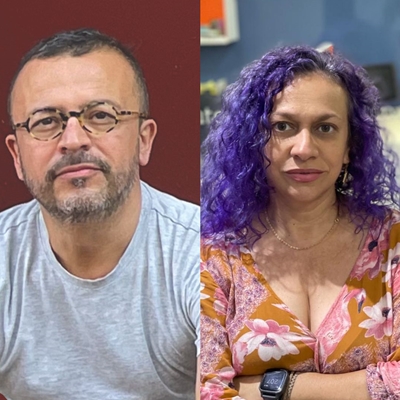
Event HFJ1
Pablo Muñoz, Laura Romero and Edna Liliana Valencia in conversation with Lidy Agámez
Can I touch your hair?
Universidad de Cartagena, Claustro de San Agustín (Biblioteca)
Read more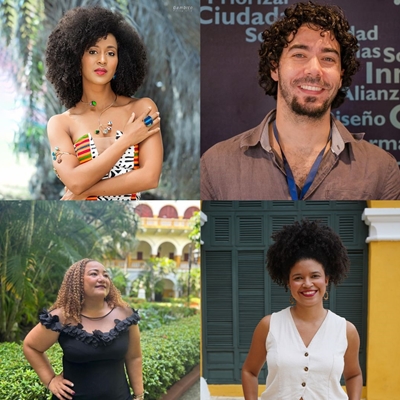
Event HFC4
Reading and writing workshop with Nicole Sánchez Castillo
Belo: a countryside hero
Nelson Mandela, Ludoteca Sonrisas de Cartagena
Read moreBelo is a rattlesnake from Abreguí, a village where one resident has gone missing. Visible are the tracks of a very large animal… and there are those who say there is a hidden treasure in the area. With the book Belo: un héroe del campo as a starting point, Nicole Sánchez Castillo offers a reading and writing workshop in which children will play games inspired in the story and they will learn to write a letter, which they will send to Belo.
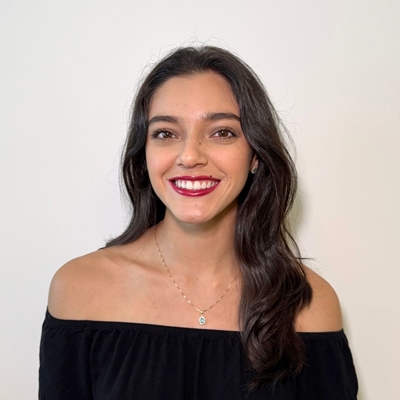
Event HFC5
Workshop with Mary Grueso
Membrillal, Hogar Infantil Comunitario La Abejita
Read moreThe poet, storyteller, writer, activist and teacher Mary Grueso is the first Afro-descendent woman to be a member of the Colombian Academy of the Language. This pioneer in Afro-Colombian children’s literature, who has black children as the protagonists of her stories, is the author of entertaining books such as Agüela, se fue la nuna, about a child who wants to understand what has happened to the moon, and the modern classic La muñeca negra, a narrative poem that is now an illustrated book.

Event HFC6
Art workshop with Niurka Rigñack
Imaginart: exploring art through literature
Corporación Ruleli
Read moreCulture should be accessible to all and local art deserves a higher profile. This is the thinking behind the work of Colartis, the Corporación Pulso Creativo, which offers artistic education to young people who have limited access to cultural spaces. Through three artworks by Cartagena artists, those taking part in this theoretical and practical workshop will learn to connect a work and its message, using the concepts provided by the educators to help decode each one. Workshop lead by Niurka Rigñack.
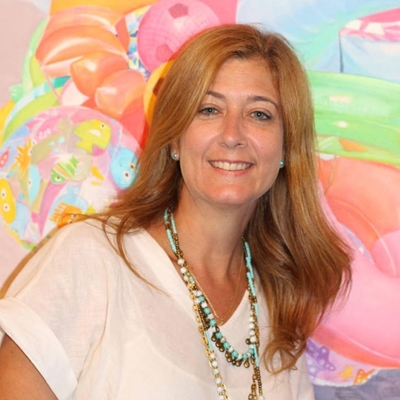
Event HFC7
Textile dyeing workshop with Rodrigo Paredes
The form of water
La Canoa Literaria
Read moreWhat is water and what does it represent in our lives? Rodrigo Paredes will run a traditional textile dyeing workshop, and will explore the relationship between water and identity, memory and imagination, building a dialogue between communities and bodies of water. Each participant will dye their own cloth, and will learn to experiment with folds and cords and how to apply dyes, and about the absorption process.

Event 2
Marcela Meléndez and Andrea Otero in conversation with Adolfo Meisel
When the playing field isn’t flat
Centro de Convenciones (Salón Barahona)
Read moreBeing a young woman in Cartagena de Indias can be a double challenge when it comes to finding work. It is estimated that the rate of female unemployment in the Caribbean region is as high as 13 percentage points higher than the rate for men. This, in practice, means that as soon as they enter employment, their conditions are not equal to those of men. To talk about the different causes and consequences of this situation, we welcome the economists Andrea Otero, a Banco de la República researcher; Marcela Meléndez, from the World Bank; and the economist and rector of the Universidad del Norte, Adolfo Meisel.
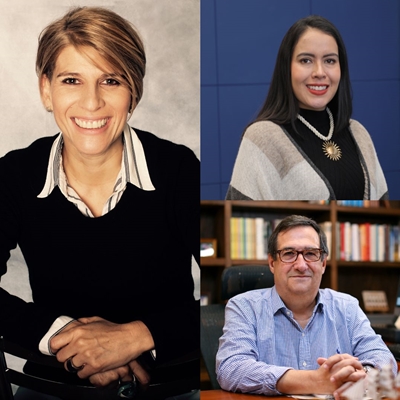
Event 3
Sara Jaramillo Klinkert and Gustavo Rodríguez in conversation with Catalina Villa
In search of identity
Centro de Formación de la Cooperación Española (Patio)
Read moreThe characters of El cielo está vacío, by Sara Jaramillo Klinkert (Colombia), and Mamita, by Gustavo Rodríguez (Peru), are, in their own way, examining history in order to strengthen and understand their identity. Rodríguez pays homage to his mother and grandmothers, telling their story and exploring family memory. Jaramillo Klinkert proposes a rite of passage, in which a young Colombian woman who has travelled to London suffers from the vulnerabilities of the migrant, finding herself in a dependent position in an asymmetrical relationship; a work about loneliness and the loss of youth. They will talk to the journalist Catalina Villa.
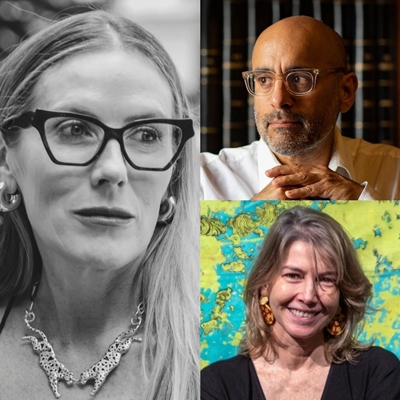
Event HFC8
Creative writing and traditional rhythm workshop with Brillith Sossa Wilches
The word drum
Children International sede la Esperanza
Read moreThe cultural manager Brillith Sossa Wilches imagines a space based on the stories created by children involved in the Resonating Hope; Black History, Our History project, which were printed in the illustrated booklet Cuentos del barrio: la esperanza afrodescendiente. Participants will read the stories and do exercises in poetry writing and sound games inspired by Afro rhythms, including the bullerengue and the mapalé. A workshop for linking body, memory and imagination.

Event HFJ3
Andrés Cota Hiriart in conversation with María del Rosario Osorio Fortich
Discover the iconic axolotl
Universidad de Cartagena, Claustro de San Agustín (Biblioteca)
Read moreAndrés Cota Hiriart is a Mexican biologist, zoologist and writer who has written books including Faunologías, El ajolote. Biología del anfibio más sobresaliente del mundo, Fieras familiares and Fieras interiores, and has come close to all kinds of animals in their natural habitats, travelling to some amazing places around the world, like the Galapagos, Borneo, Sulawesi and the island of Guadalupe. At this event, at which he will share images and excerpts from his books, Cota will focus on a wonderful creature from his native Mexico: the axolotl, a little amphibian with an impressive capacity for regeneration. He talks to María del Rosario Osorio Fortich.

Event HFJ4
Lu Beccassino in conversation with Mercedes Posada
De amor y desamor
Universidad Tecnológica de Bolívar (sede Manga)
Read more¿Qué podemos aprender hoy en día de los antiguos filósofos estóicos? Séneca, Epicteto y Marco Aurelio tienen mayor vigencia de la que creemos, gracias a sus reflexiones sobre sabiduría, templanza y valentía. Lu Beccassino aplica al amor y el desamor dichas enseñanzas en Si nos enseñaran a amar, con consejos para antes, durante y después del amor. Enseñanzas sobre mejores formas de amar, sin sufrir en el intento. Shei talks to Mercedes Posada.

Event 4
Mario Mendoza in conversation with Ana María Parra
Fugue State 1986
Centro de Convenciones (Auditorio Getsemaní)
Read moreIn December of last year, Fugue State 1986 was released on the Netflix platform. Aremass killers born or are they made? How do the minds of these murderers work? What is the condition that some psychiatrists have called amok syndrome? A dialogue between the series’ screenwriter, Ana María Parra, and the writer Mario Mendoza.
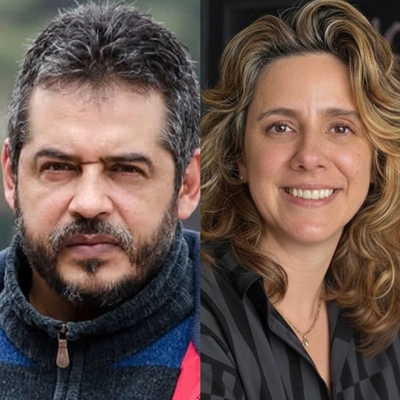
Event 6
Nesrine Malik in conversation with Camila Osorio
South to North Conversations: Cartographies of our world
Teatro Adolfo Mejía
Read moreWe explore the cartographies that connect the Global South with journalist and writer Nesrine Malik (Sudan/UK) in a conversation where she shares personal experiences far removed from hegemonic narratives, because there is much to learn from the diversity of narratives from the Global South. In conversation with Camila Osorio.
Simultaneous interpretation from English to Spanish available
With the support of Open Society Foundations
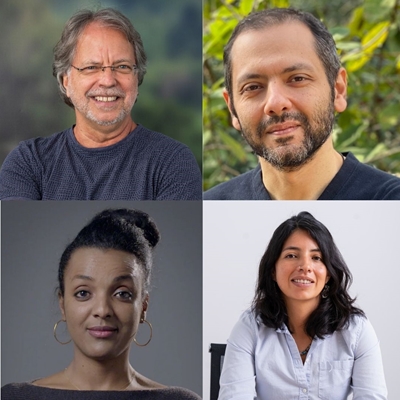
Event 5B
Omri Boehm in conversation with Pablo Arango
Universalism for a better world
Centro de Convenciones (Salón Barahona)
Read moreIsraeli philosopher Omri Boehm is the author of Radical Universalism, a book that goes beyond offering a new interpretation of universalism: it revolutionizes our fundamental understanding of what the term means and explains why it is essential to preserve the struggle for emancipation. To do so, Boehm turns to a rereading of Kant and to his often misunderstood recovery of the anti-authoritarian monotheism of the Jewish prophets, which culminates in the idea that “no man has the right to obey,” neither God nor the State. Boehm, also the author of a binational framework for Israel and Palestine in Haifa Republic, argues that radical emancipation, if sustained, can make possible a commitment to humanity over identity-based positions.
Simultaneous interpretation from English to Spanish available

Event HFJ5
Óscar Daniel Campo and Muriel Vanegas in conversation
The kapok of memory
Universidad de Cartagena, Claustro de San Agustín (Biblioteca)
Read moreThe iconic novel by Roberto Burgos Cantor, La ceiba de la memoria, has recently been republished by Himpar Editores. Óscar Daniel Campo, the editor of this version, will talk to Muriel Vanegas about the book, which won the Casa de la Américas Fiction Prize and was shortlisted for the Rómulo Gallegos Prize. This classic novel tells the story of the Benkos Biohó insurrection, which resulted in the foundation of the first haven for fugitive slaves. A story about resistance to slavery and war; a story that is a call to the cultivation of a more plural, collective memory.
Free event for the university community
With the support of Ford Foundation
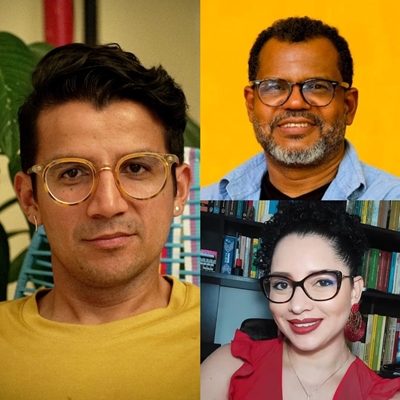
Event HFJ6
Sani Ladan in conversation with Claudia Ayola
Africa in one click
Universidad Tecnológica de Bolívar (sede Manga)
Read moreSani Ladan (Cameroon) is an anti-racism activist, pan-Africanist, human rights defender and expert in international relations. He is also the creator of the podcast África en 1 click, designed to offer Spanish speakers a view of the African continent, talking about its history, literature, culture and geopolitics. He is also the author of the book La luna está en Duala y mi destino en el conocimiento, which tells the story of his migratory experience, from his hometown of Duala to Spain, aged just 15. En conversación con Claudia Ayola.
With the support of Acción Cultural Española, AC/E

Explore All Genres
- Afrodescendencias
- Latin America
- South to North
- Art
- Arts & Culture
- Children
- Culture
- Design
- Drawing
- Economics
- Equality
- Fashion
- Film
- Food
- Gender
- History
- Human Rights
- Indigenous Cultures
- Journalism
- Language
- Law
- Literature
- Music
- Nature & Environment
- Philosophy
- Photography
- Podcast
- Poetry
- Politics
- Psychology
- Religion
- Science
- Sport
- Technology
- Theatre
- Workshops
- World Affairs
Partner for Latin America

Principal Sponsors
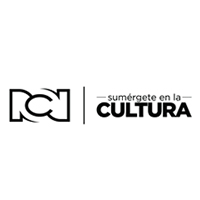
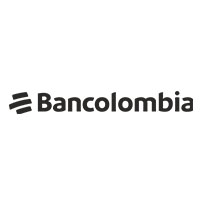
Government Partners
